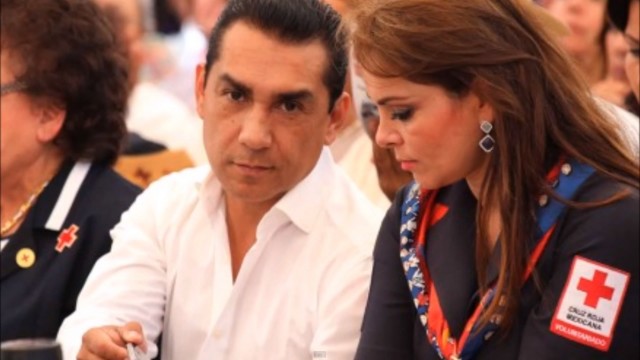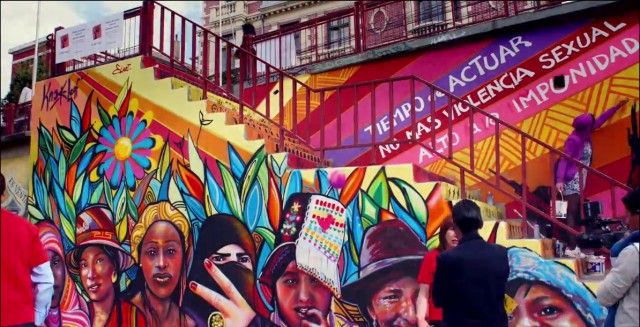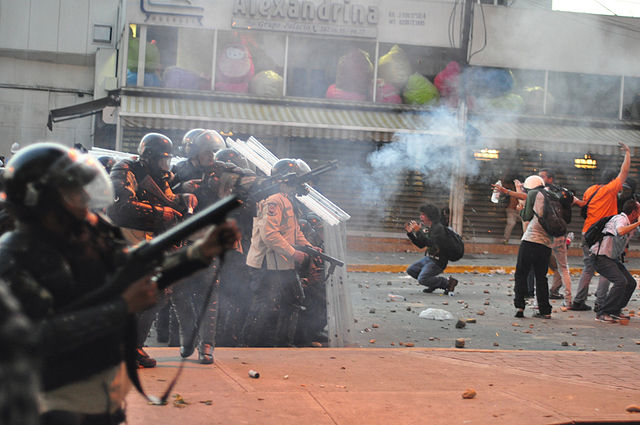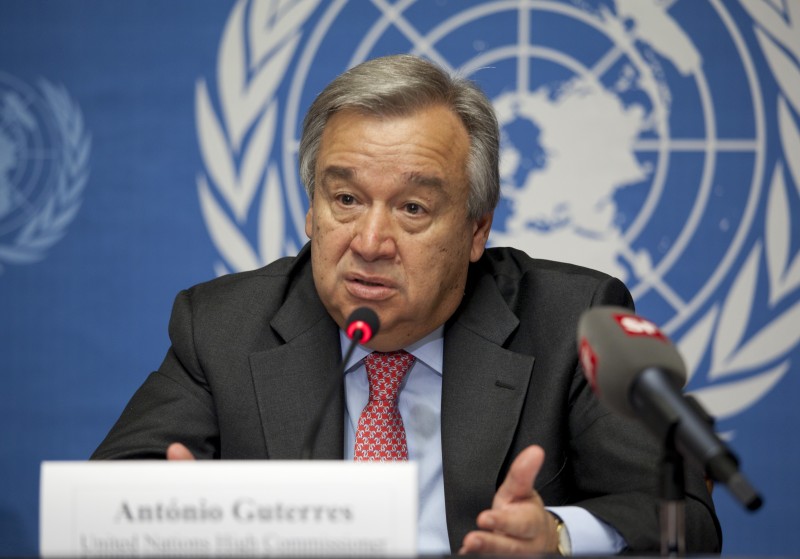
Latin America: Week in Review, Mexico, North America
Iguala Major and First Lady Captured in Case of Mexico’s Missing Students
November 5, 2014 By Staff
Top Story — The fugitive mayor and first lady of Iguala were apprehended early Tuesday in a working-class neighborhood of Mexico City. They went into hiding days after being implicated in the Sept. 26 attack on teacher-training students that left 6 dead and 43 missing.
Authorities say José Luis Abarca and his wife María de los Ángeles Pineda ordered the attack on the students. The derelict house in which they were captured, in the neighborhood of Iztapalapa, contrasts sharply with the lavish life the couple enjoyed as mayor and first lady.
The couple reportedly exercised ruthless control over Iguala in conjunction with local drug cartel Guerreros Unidos. In a statement, Attorney General Jesús Murillo Karam accused Abarca of receiving up to $220,000 in bribes from the cartel every few weeks. According to Karam, Pineda played an integral role in the cartel’s operations. Two of her brothers were on Mexico’s most-wanted list before being killed in 2009. Authorities believe a third brother runs drug operations for the cartel in the area where the students went missing.
The missing students are from a rural teacher-training college with a history of radical activism. Abarca ordered the attack on the students because he believed they were on their way to disrupt a public appearance by his wife, according to Karam.
Abarca previously said he was dining out on Sept. 26, and that he had ordered the police not to interfere with the students. A few days later, he and his wife went into hiding.
Tuesday’s arrest brings authorities no closer to discovering the fates of the missing students. Earlier searches of the area around Iguala have turned up multiple mass graves, none of which contained the students’ remains. So far at least 56 people have been arrested in connection to the attack. Authorities are still on the hunt for Iguala’s police chief.
Headlines from the Western Hemisphere
North America
- A team from Mexico’s National Human Rights Commission is conducting an investigation into the killing of three American siblings in the city of Matamoros.
- The Associated Press reports on the pervasive racism that soccer players like Brazilian legend Ronaldinho face when playing in Mexico.
- The Los Angeles Times has an article about long-time, undocumented U.S. residents who have been deported back to Mexico — known as “The Other Dreamers” in reference to the Dream Act, which would help some immigrants who were brought to the U.S. as children more easily obtain citizenship.
Caribbean
- The Dominican Republic has quit the Inter-American Court of Human Rights, raising concerns about discrimination against Dominicans of Haitian descent.
- The New Yorker is the latest publication to explore the political implications of Cuba’s efforts fighting Ebola in West Africa.
- Associated Press photographer Franklin Reyes Marrero died in a car crash in Havana, Cuba.
Central America
- The New Yorker showcases a photo series by Matías Costa on the former residents of the U.S.-controlled Panama Canal Zone, which was abolished in 1979.
- Costa Rica’s legislature is debating a bill that would protect HIV patients from workplace discrimination and expand the distribution of free condoms and other prophylactics, a move that has attracted resistance from some conservative groups.
Andes
- Bidding continues for Venezuela’s Citgo oil company, despite earlier indications that the country had abandoned its effort to sell the U.S.-based oil refiner, which was reportedly drawing lower prices than officials had hoped.
- A top EU official implied Tuesday the bloc would be willing to offer financial assistance to the victims of the Colombia’s civil conflict, as negotiators work to incorporate victims’ rights into the peace talks between the government and FARC guerrillas.
- Colombia’s smaller guerrilla army, the ELN, said Monday on its website that it has always insisted that its anticipated peace talks with the government be open to the public, a stipulation the government has resisted, according to the ELN.
Southern Cone
- Brazil’s production of crude oil reached new heights in September, officials announced Tuesday, but the news may do little to calm anxieties over a stagnant economy as oil continues to fetch low prices on international markets.
- Argentina has filed an appeal against a U.S. judge’s decision to find the country in contempt for evading bond payments, the latest chapter in a prolonged dispute between Argentina and a group of U.S. hedge funds.
- Paraguay has confirmed its first case of domestically-acquired Chikungunya, the mosquito-borne virus that continues to spread across the region.
- A Brazilian prosecutor called for Cuban physicians participating in the “More Doctors” program, which places foreign doctors in remote areas of Brazil, to be paid directly rather than through the Cuban government, as some doctors allegedly get paid as little as a quarter of what Brazil pays Cuba for their services.
Image: YouTube
Subscribe to Today in Latin America by Email
< Previous Article

November 4, 2014 > Staff
Bolivian Official Decries Pervasive Violence Against Women
Next Article >





3 Comments
[…] leader of Guerreros Unidos, Sidronio Casarrubias Salgado, was arrested in October, while the mayor and first lady of Iguala were captured Nov. 4, in Mexico City. The governor of Guerrero resigned over widespread […]
[…] disappearance, 44 of them police officers. The former mayor and first lady of Iguala were arrested in November for allegedly ordering the attack on the […]
[…] disappearance, casting Iguala’s then-mayor José Luis Albarca and his wife as the chief architects of the […]
Comments are closed.